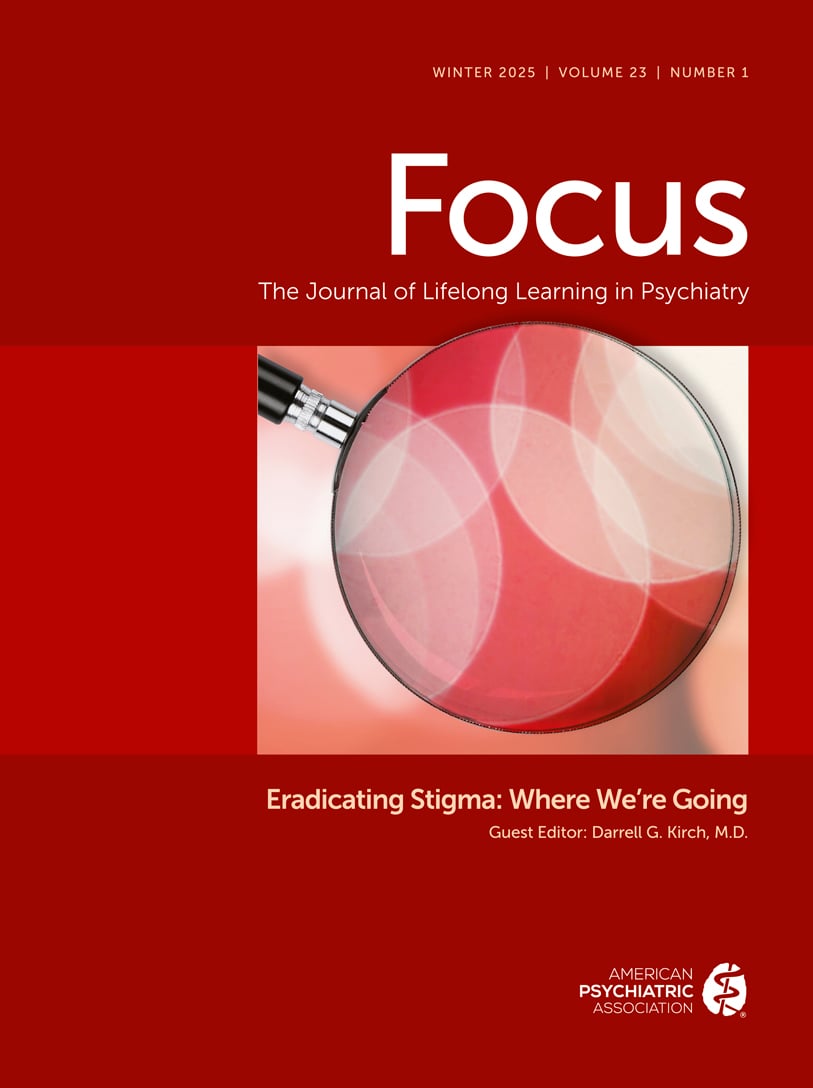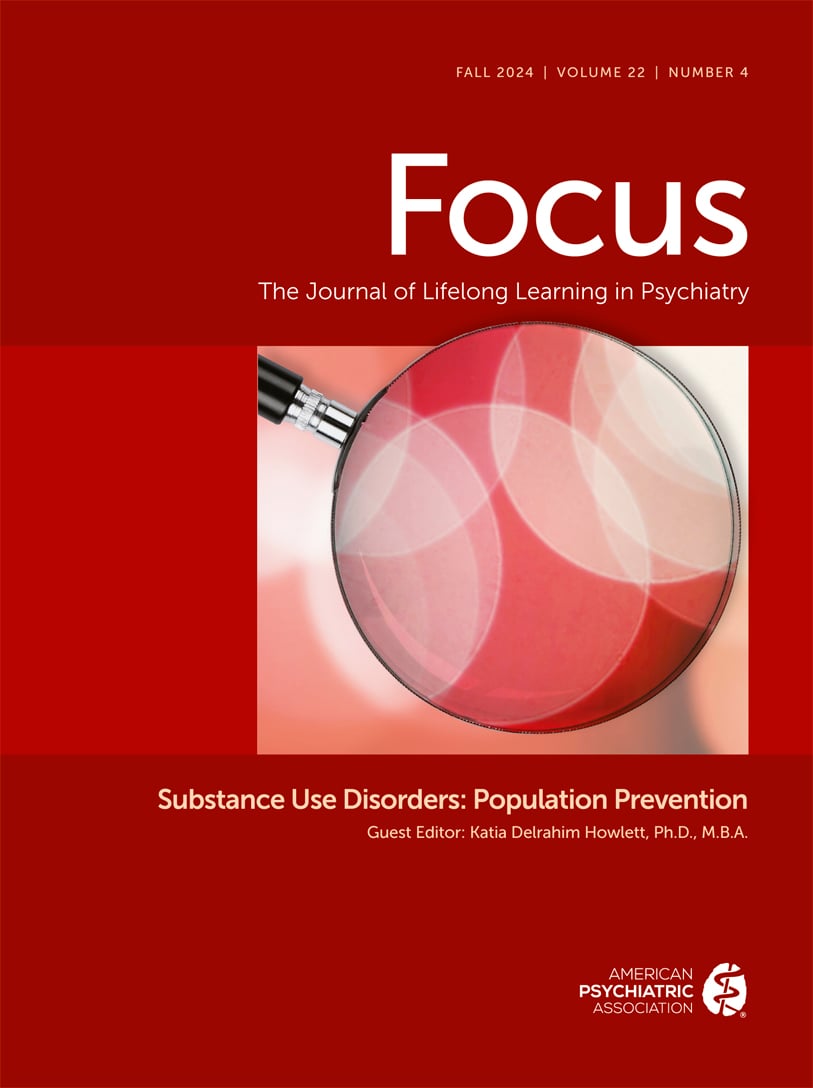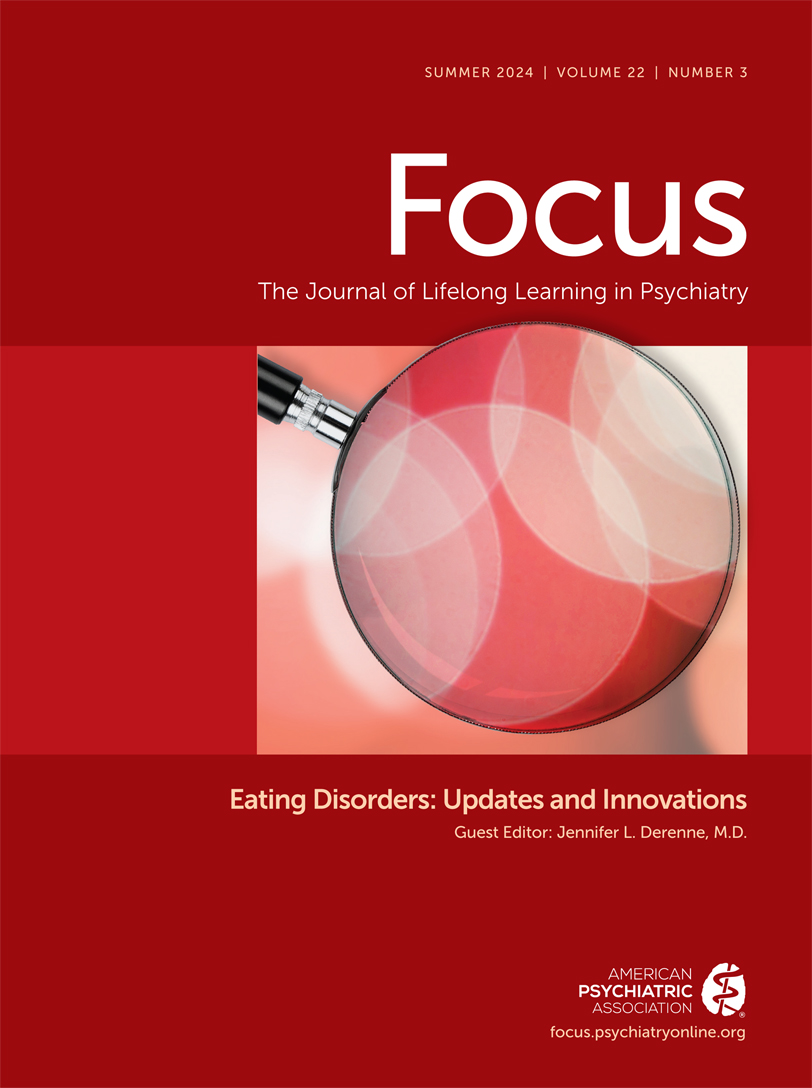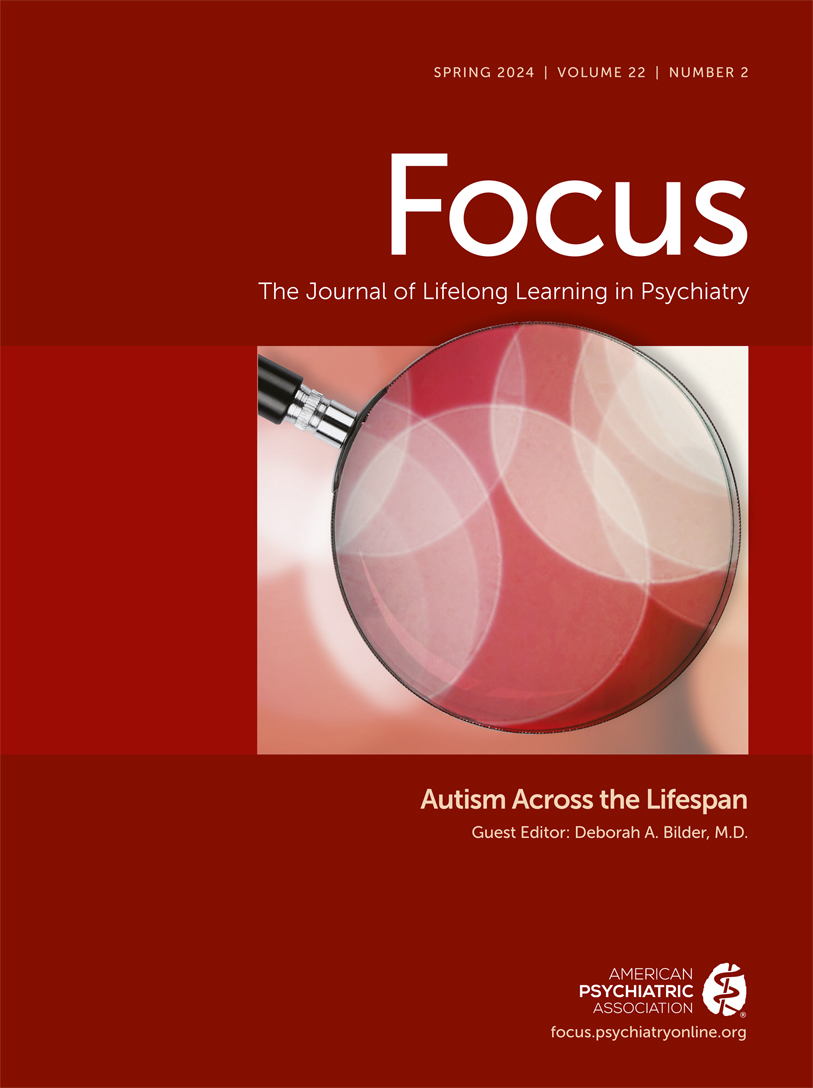Focus
- Volume 22
- Number 1
- January 2024
From the Guest Editor
Reviews
Publication date: 01 January 2024
Pages3–15The authors reviewed the literature, published between 2018 and 2023, on treating bipolar disorder in the perinatal period in order to summarize current treatment perspectives. Mood episodes occur during pregnancy and there are high rates of both initial ...
https://doi.org/10.1176/appi.focus.20230020Publication date: 01 January 2024
Pages16–24Perinatal mood and anxiety disorders (PMADs) are the most common complication of childbirth. When poorly controlled, they are associated with worse obstetric outcomes, such as higher rates of preterm birth and unplanned cesarean delivery. They are also ...
https://doi.org/10.1176/appi.focus.20230023Publication date: 01 January 2024
Pages25–34Drug overdose is a leading cause of maternal mortality. Psychiatrists can play a critical role in reducing these deaths by delivering effective evidence-based treatments for perinatal opioid use disorder (POUD), including the use of buprenorphine. ...
https://doi.org/10.1176/appi.focus.20230018Publication date: 01 January 2024
Pages35–43When neonatal and obstetrical complications occur, the identification and management of mood and anxiety disorders become complex with an ever-expanding array of psychiatric needs that include the management of grief- and trauma-related disorders. With ...
https://doi.org/10.1176/appi.focus.20230021Publication date: 01 January 2024
Pages44–52Postpartum psychosis is the most severe psychiatric disorder associated with childbirth. Although rare, it is considered a psychiatric emergency that warrants immediate medical attention and inpatient care to ensure safety, complete diagnostic evaluation, ...
https://doi.org/10.1176/appi.focus.20230025Publication date: 01 January 2024
Pages53–62Polycystic ovary syndrome (PCOS) is the most common endocrine disorder among women of reproductive age. Individuals with PCOS report reduced quality of life compared with those without PCOS, with possible contributing factors including infertility, ...
https://doi.org/10.1176/appi.focus.20230024Ask the Expert
Ethics Commentary
Communication Commentary
Bibliography
Abstracts
Influential Publications
Publication date: 01 January 2024
Pages81–96Premenstrual dysphoric disorder (PMDD) and premenstrual syndrome (PMS) refer to physical, cognitive, or affective symptoms that arise in the late luteal phase and remit with menses. The present work is a clinically focused scoping review of the last ...
https://doi.org/10.1176/appi.focus.23021035Publication date: 01 January 2024
Pages97–108Objective: The menopause transition is associated with difficulties in executive function. However, it is unclear whether these difficulties persist past perimenopause. This study investigated whether potential confounders, including natural vs. surgical ...
https://doi.org/10.1176/appi.focus.23021034Publication date: 01 January 2024
Pages109–119Polycystic ovary syndrome (PCOS) is one of the most prevalent gynecological endocrine conditions affecting reproductive women. It can feature a variety of symptoms, such as obesity, insulin resistance, skin conditions, and infertility. Women with PCOS are ...
https://doi.org/10.1176/appi.focus.23021032Publication date: 01 January 2024
Pages120–125Objectives: Recommendations on lithium dosing around delivery vary, with several guidelines suggesting that lithium should be discontinued prior to delivery. We aimed to evaluate the validity of these recommendations by investigating 1) maternal lithium ...
https://doi.org/10.1176/appi.focus.23021031Publication date: 01 January 2024
Pages131–142Background: Postpartum psychosis (PPP) is a psychiatric emergency that generally warrants acute inpatient care. PPP is marked by the sudden onset of affective and psychotic symptoms with a rapid deterioration in mental state. Evidence suggests that PPP is ...
https://doi.org/10.1176/appi.focus.23021033Past Issues
View Issues Archive
Vol. 23 | No. 1

Vol. 22 | No. 4

Vol. 22 | No. 3
